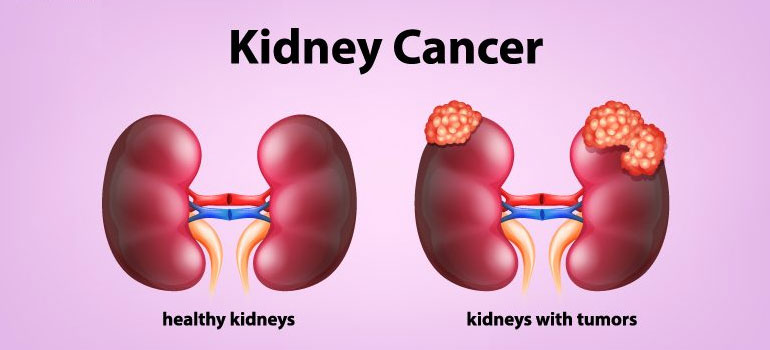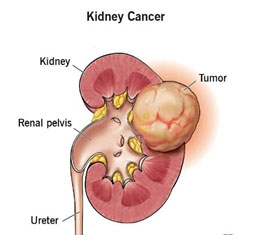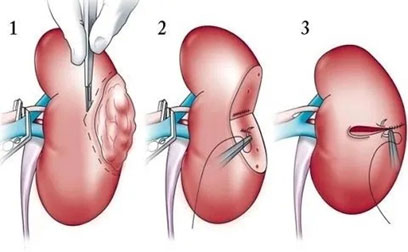
Any Kidney Tumour whether it is benign or cancerous, evolve from a disruption of gene cells one or more in DNA. The genetics cell multiplications are normally under control but when they go out of control, they form a mass of a tissue which is called a Tumour. Approximately 85% of all kidney cancers are renal cell carcinoma (RCC). Transitional cell cancer (TCC) of the renal pelvis is less common accounting for about 8% of diagnosed cancers. About 5% to 7% tumours could be benign tumours of Kidney.
The exact causes of kidney cancer are not well understood. Kidney cancer is not contagious; no one can "catch" any type of cancer from another person.
Scientists have learned other major risk factor for kidney cancer:

1. If these tests suggest that a tumour is present, it is important to know the extent, or stage, of the disease. Because kidney cancer can spread to the bones, lungs, liver, or brain, staging procedures may include special x-rays and tests to check these organs.
2. Ideal treatment for Kidney Cancer is surgery which can be Partial Nephrectomy or Radical Nephrectomy. These may require additional chemotherapy, immune therapy etc depending of extent of the disease or the recurrence of the cancer.
3. These surgeries can be achieved either by Open surgery, Laparoscopic or Robotic surgery.
